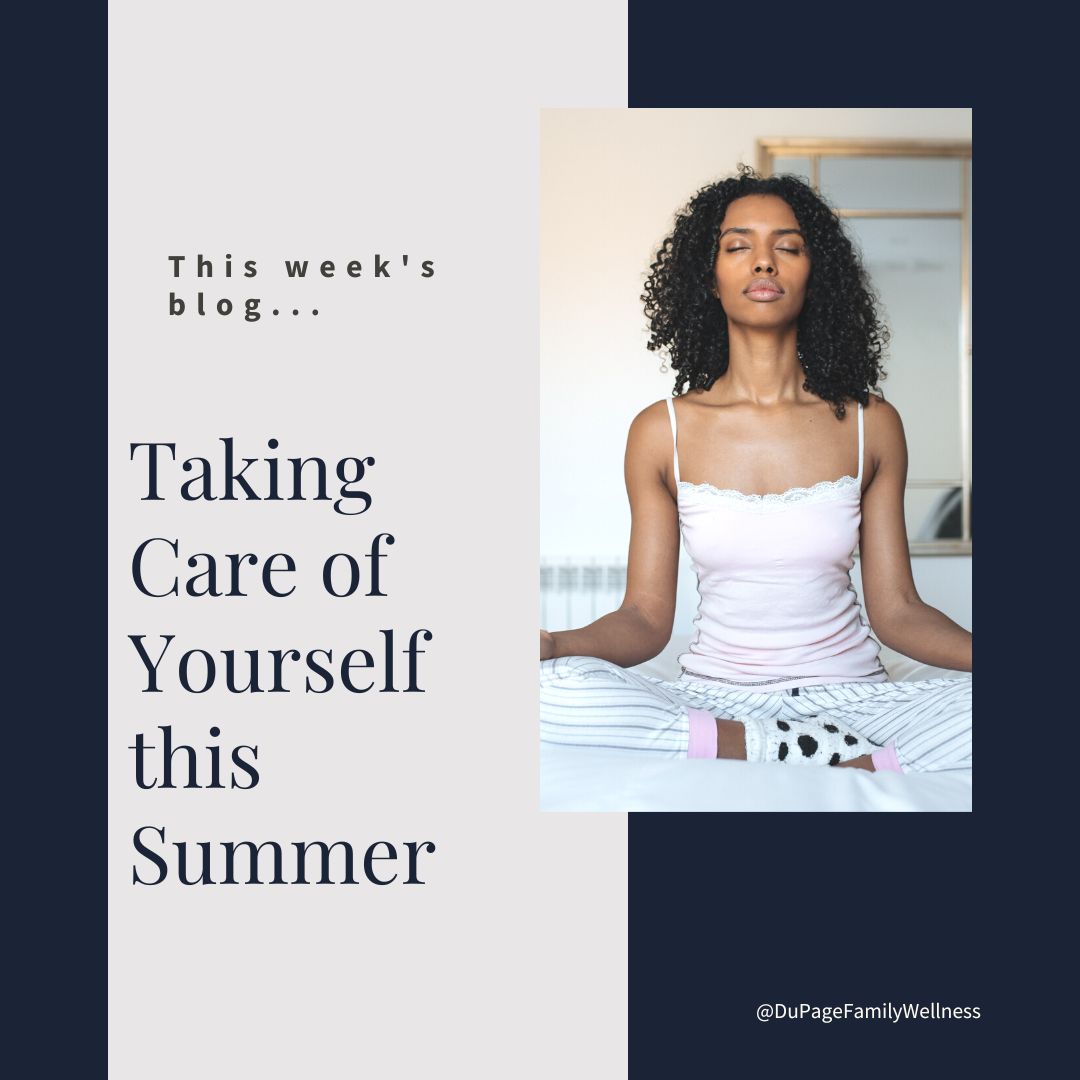 What have you been doing to take care of yourself this summer? Whether the kids are home or work is in full swing (or both), it’s important to take time for yourself!
What have you been doing to take care of yourself this summer? Whether the kids are home or work is in full swing (or both), it’s important to take time for yourself!
This doesn’t have to take long or cost a lot of money. Some self-care techniques only take five minutes are completely free. While it’s nice to take vacations or do spa days, these little things may be more practical.
So, take time now to look at our biggest tips for taking care of yourself, and make a plan for your summer!
Grounding
Grounding is bringing your awareness to the present moment. This is done through awareness of your body and surroundings. Since most of our worry is about things in the past or things yet to come, this is extremely helpful in dealing with stress.
Simply closing your eyes and paying attention to your breath brings you back to the present moment. Intentionally looking at things in your surroundings or noticing sensory input can be effective as well. The key is the intention and awareness of the action.
For more directed grounding exercise check out the following.
- Box Breathing (also known as Four Square breathing)
- 5-4-3-2-1
- Basic Breathing for Stress Management (from @core360belt)
- Self-Compassion Meditations (with Kristen Neff)
Social Connection
Meaningful social connections are good for your mental and physical health. Positive connections lead to the activation of the parasympathetic nervous system. This is often referred to as co-regulation of the nervous system.
So, connect with a friend...
- in person if you are able
- with a video call so you can be face-to-face.
- through a phone call.
- by email and text.
And remember to set some time aside for the people you have in your home. Having a meal together, playing a quick game, reading a chapter of a book together, or going for a walk in the evening can be a great way to connect.
Healthy Boundaries
Something you can do to take care of yourself in these connections is having healthy boundaries.
Oftentimes we do not consider what is best for us, simply going along with what others ask of us. This can leave us with little margin; overscheduled and overwhelmed. It can also lead to resentment.
It is important to consider what we are willing to give; financially, physically, and even emotionally. After doing so, many of us will find that we need to learn how to say “no” to others without feeling guilty as well.
Handling Chronic Stress
Reframing the way we perceive stress is another valuable tool in reducing the impact of chronic stress. Shifting your perspective is not an easy thing to do, but it is often possible. This may look like taking the long view of a situation, asking yourself if the thing causing you stress will even matter in five years.
It may mean accepting things the way they are. Acceptance can be extremely difficult, but it can also be a really valuable tool for handling stress you cannot change. Once we recognize the stress is here to stay (at least for a while), we can stop fighting against it. This may involve grieving the fact that things aren't the way you'd prefer, but over time this process can lower stress levels.
You can also try using the techniques found here.
Practice Gratitude
Feeling gratitude is actually good for our brains. It activates the hypothalamus and floods our brains with the feel-good hormone dopamine. Studies have found it decreases the prominent stress hormone cortisol. It also decreases blood pressure, while increasing heart rate variability.
By placing our attention on things that bring us pleasure we can cultivate gratitude in an authentic way.
For more ideas on gratitude check out Creating a Gratitude Practice.
Acknowledging Our Difficult Emotions
The summer can add a level of stress and anxiety, or even frustration that it’s not as you hoped it would be. Whatever emotions you are experiencing, there is a reason you feel the way you do.
Pushing these difficult emotions aside can have a negative effect on our mental, emotional, and physical well-being. It is important to allow yourself to lean into these painful emotions and accept them without judgment.
Difficult emotions tend to come like a wave. Let them wash over you and then pass on. Resisting them does not tend to be an effective way to handle these types of emotions and can often make them last longer.
The key is learning to lean into these emotions to the extent you are able to without it dysregulating your nervous system. If you find the intensity of the emotions is too much or you stay in these difficult emotions too long, you may want to reach out to a professional for some support.
Choosing things that are life-giving and enjoyable for you is the most important part of self-care. There is no right or wrong; what works for one person may not work for you. Let us know what you are doing for self-care this summer!
Dr. Jamie

